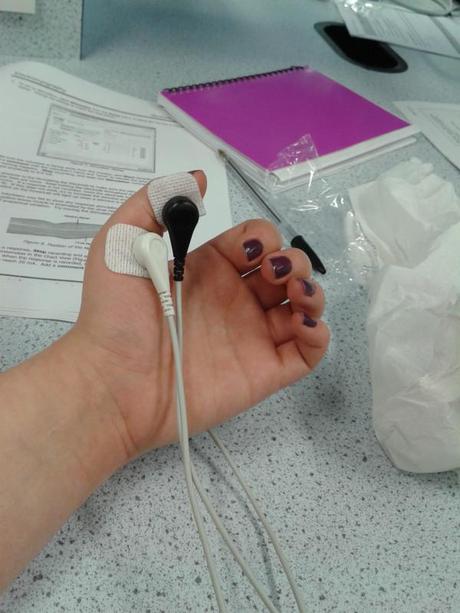 SO, WHAT IS BIOMEDICAL SCIENCE?
SO, WHAT IS BIOMEDICAL SCIENCE?Biomedical Science is basically the science underpinning medicine (just take the name apart and it gives a few clues!) We're the people that work behind the scenes of medical breakthroughs. The UCAS website states; 'Biomedical science is concerned with understanding the causes, diagnosis and treatment of disease. It requires the integration of a wide range of subjects to understand the biology of disease; predominantly anatomy, physiology, biochemistry, genetics, immunology, microbiology, pharmacology and molecular biology. More specific knowledge of disease processes comes from studying specialised biology viz. cellular pathology, clinical biochemistry, clinical immunology, haematology, transfusion science and medical microbiology'. You can become a Biomedical Scientist in an NHS laboratory (they look at things like your blood and urine samples so results can be sent back to your GP), or work in another research laboratory setting. With my degree, you are also able to register on a postgraduate Medicine degree and become a doctor, alongside many other potential career paths you may wish to take...or you can even stick around and do an MSc and PhD if you're feeling like studying for a bit longer! I currently want to become a research scientist but that may very well change...
WHAT A-LEVELS DID YOU TAKE?
I took an AS Level in History, and A Levels in Biology, Chemistry, German and Mathematics. I also took the Level 3 Extended Project Qualification (EPQ), based on the topic 'How has genetic research changed the world of medicine since the 20th Century?' Universities usually require Biology, another science and (normally as an added bonus) Maths to study Biomedical Sciences. Biology is a must, and those on my course without Chemistry and Maths find some of our modules really difficult so if you're thinking about studying Biomed, I'd say be prepared! Without my A-Levels in Chem and Maths, this year would have been 10000x harder.
HOW DID YOU FIND OUT ABOUT BIOMEDICAL SCIENCES?
 I had no idea that the subject existed until the summer before I started year 13. I originally wanted to study Biological Sciences at university and had already written my UCAS personal statement and almost finalised my choices, but after attending various open days, it began to dawn on me that it was not the degree I wanted to do, due to the focus on plant and animal sciences. I was at a University of Sheffield open day when I had this revelation, and luckily the head of Biomedical Sciences was the first person I found and I frantically told him that I had made a terrible choice and no idea what to do. He told me that I sounded like the person who would love Biomed and talked me through the degree. It sounded like perfection. Those brief 5 minutes changed my decision and once I got home, I wrote a new list of university choices and started my journey towards applying for Biomedical Science
I had no idea that the subject existed until the summer before I started year 13. I originally wanted to study Biological Sciences at university and had already written my UCAS personal statement and almost finalised my choices, but after attending various open days, it began to dawn on me that it was not the degree I wanted to do, due to the focus on plant and animal sciences. I was at a University of Sheffield open day when I had this revelation, and luckily the head of Biomedical Sciences was the first person I found and I frantically told him that I had made a terrible choice and no idea what to do. He told me that I sounded like the person who would love Biomed and talked me through the degree. It sounded like perfection. Those brief 5 minutes changed my decision and once I got home, I wrote a new list of university choices and started my journey towards applying for Biomedical ScienceWHERE DID YOU APPLY?
Cardiff, Newcastle, Sheffield, Reading and Kent. I'm at UWE as I didn't do as well in Chemistry as planned - I had the right UCAS points to get into Reading but not in the right subjects! However, my slip up in Chem has actually changed my life for the better, but I'll save that story for another day :)
WHAT SORT OF STUFF DO YOU DO?
In my first year, I studied modules based on the biology of disease, genetics, microbiology, biochemistry, analytical chemistry, scientific maths and anatomy & physiology. Come September time, we take core modules based on experimental analysis, biology of disease and immunology, along with 2 modules we choose ourselves - I have chosen to go down the Molecular Genetics and
You can find more info my specific course here - pretty much every university does my course, but be warned that they do have different UCAS codes at certain institutions. I am on a course with the code C980 but also applied to C741 and B940 courses, even though they were technically all the same! If you're considering Biomedical Science, feel free to e-mail me or comment below - I'll try my best to answer :)

